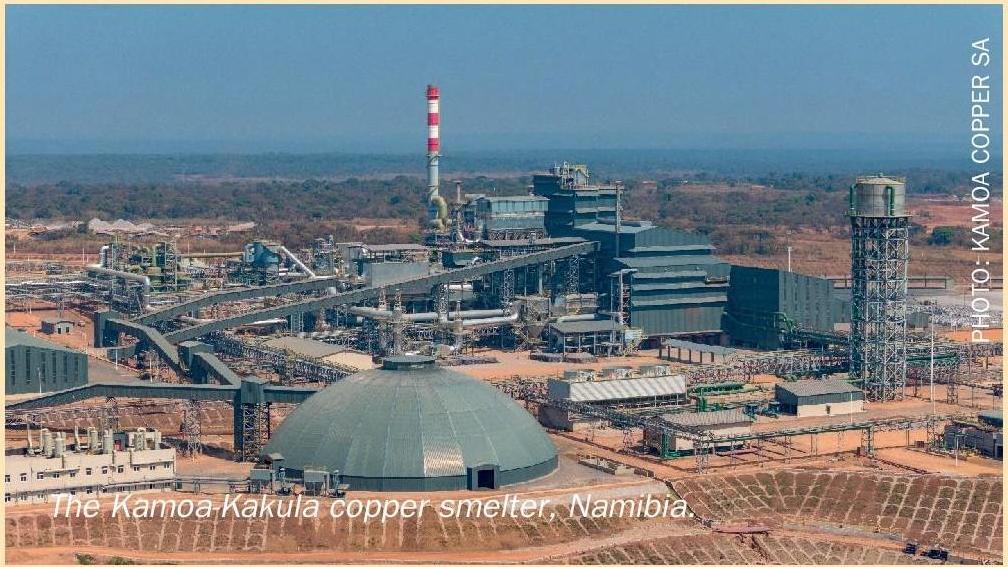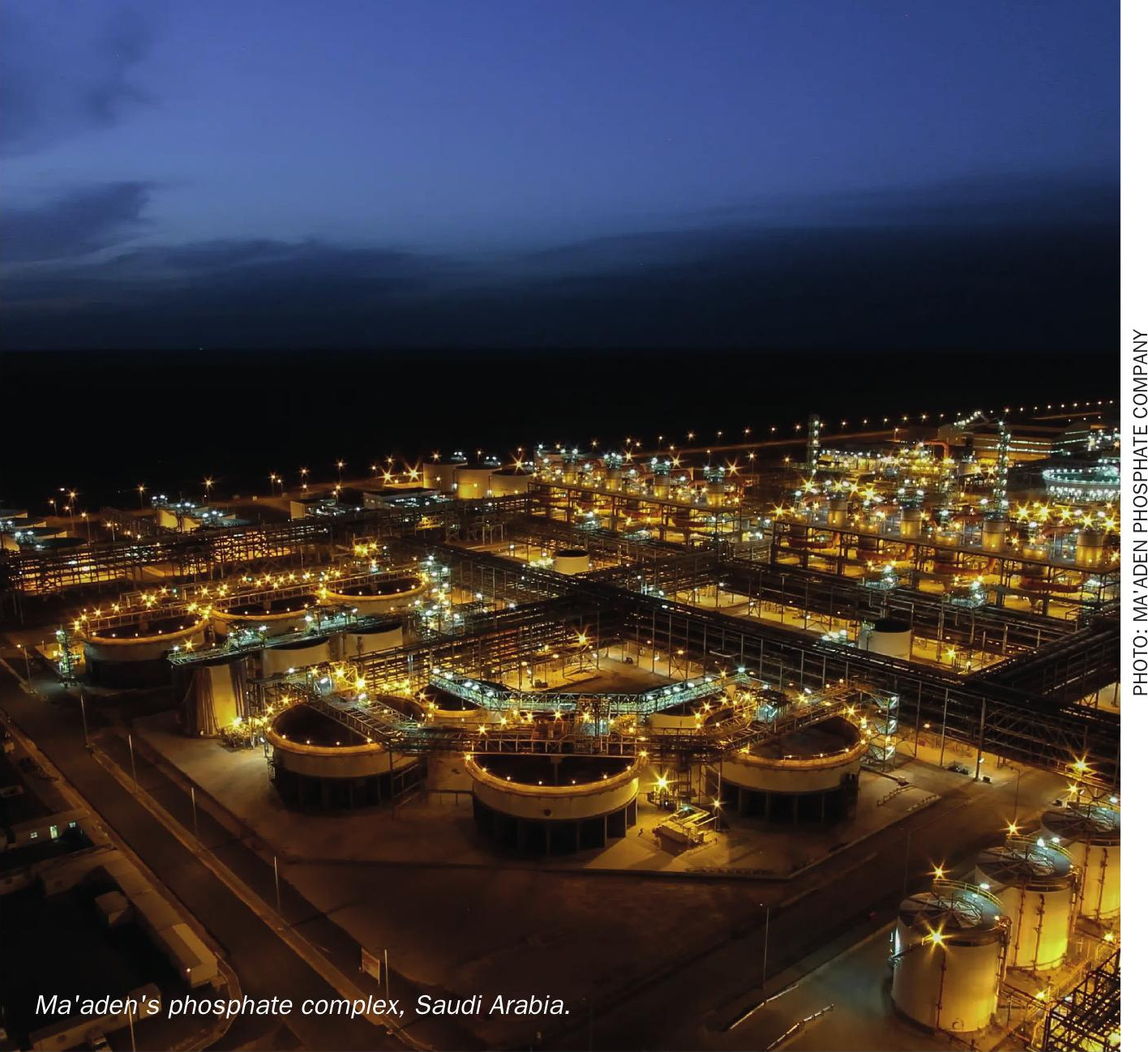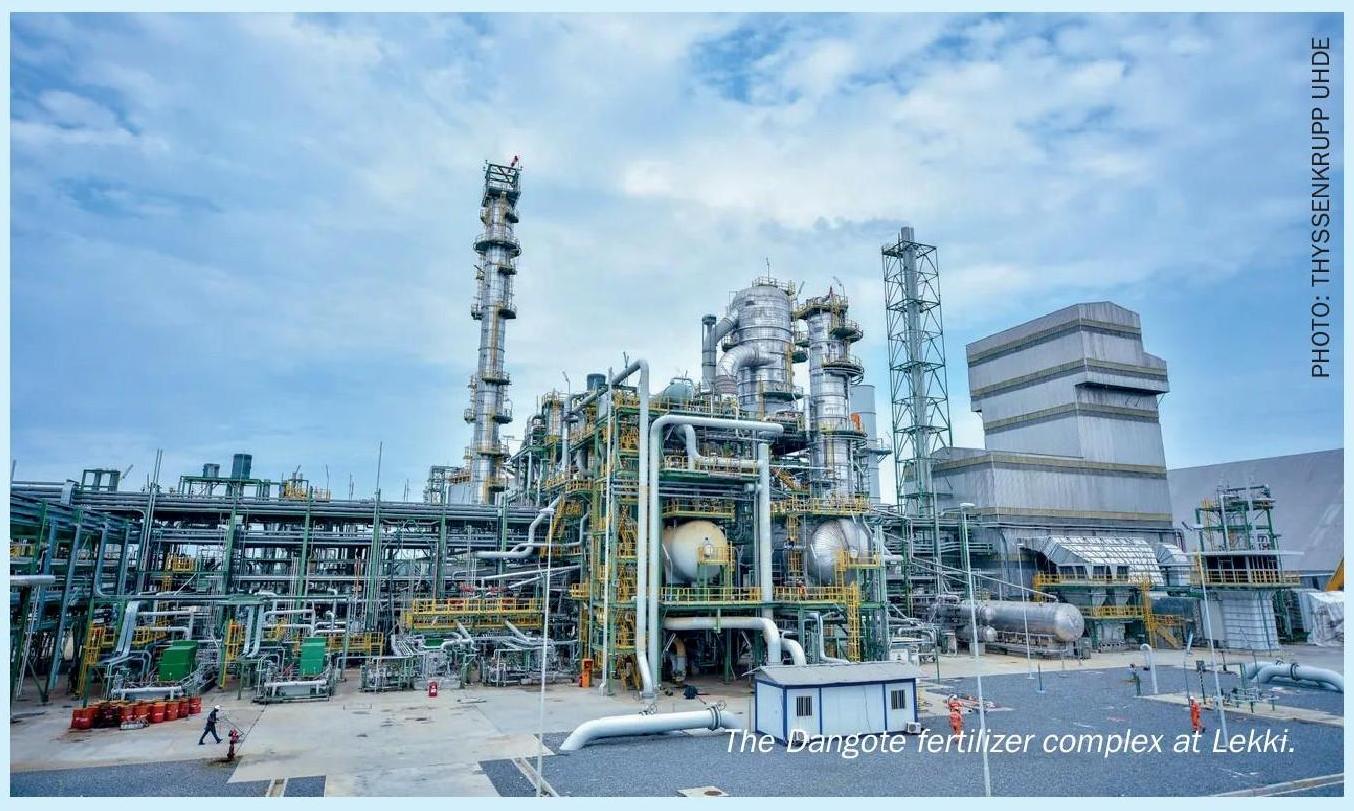Nitrogen+Syngas 394 Mar-Apr 2025

19 March 2025
MOPCO lines up thyssenkrupp to lower carbon intensity of production
thyssenkrupp Uhde says that it has been selected by MOPCO – the Misr Fertilizers Production Company – to supply advanced technology for three existing ammonia and urea plants in Damietta, Egypt, to improve the sustainability of production. Using an innovative carbon capture and usage (CCU) solution, the aim is to remove up to 145,000 t/a of CO2 from the flue gas of the existing ammonia production and use them to boost urea production. At the same time, three 150 t/d axial-radial flow uhde® ammonia converter cartridges using JM’s high performance KATALCOTM 74-1 catalyst will be installed in the existing converters to increase ammonia production capacity while lowering natural gas consumption in the synthesis loop by around 10%. To bring down CO2 emissions further, additional green hydrogen feedstock will be sourced from new water electrolysis units powered by renewable energy. MOPCO plans to produce up to 150,000 t/a of green ammonia.
Ahmed Mahmoud El-Sayed, chairman and managing director of MOPCO said: “This collaboration with thyssenkrupp Uhde marks a significant step towards our sustainability strategic goals. Their world leading technologies will not only increase our production capacity but also deliver proof for our commitment to provide more climate-friendly urea and produce green ammonia, where MOPCO will become one of the leaders to produce such products in MENA.”
MOPCO is the largest nitrogen fertilizer complex in Egypt. The ammonia and urea plants (three plants each) were originally built by thyssenkrupp Uhde between 2006 and 2015, each with a capacity of approximately 1,200 t/d of ammonia and 2,000 t/d of urea.






